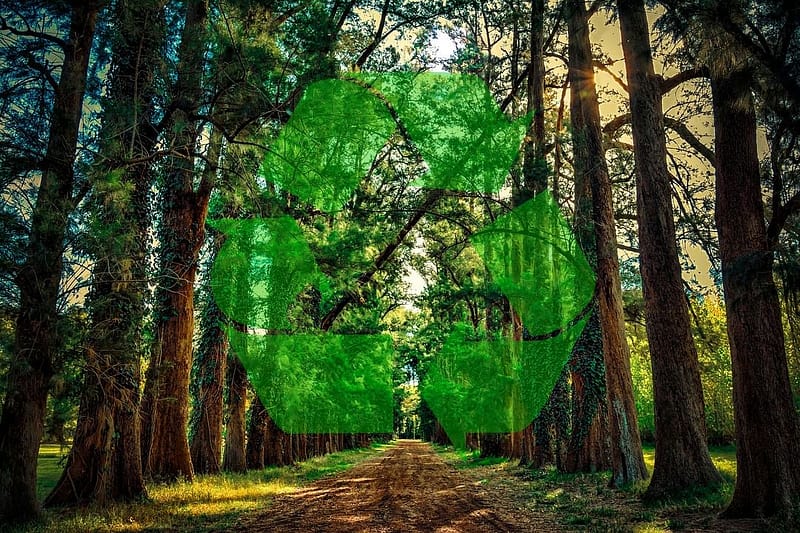In the last 40 years, world consumption of paper has grown four hundred percent! Today, the world consumes about 300 million tons of paper every year.
Most of this paper is made from virgin pulp that comes from nearly 4 billion trees. Trees, that would have served as badly needed carbon sinks, had they not been cut down to meet this global demand for paper.
Does recycling paper help?
Yes, definitely.
Paper comes from Trees…
If many more of us started recycling paper, and cut down on our use of paper made from virgin pulp, perhaps the 4 billion trees that are harvested every year to make paper, could be spared and left standing to perform a more important task – that of absorbing carbon dioxide from the atmosphere.
To produce paper takes twice the energy used to produce a plastic bag. Everything takes energy to produce
Paper comes from Trees…
In today’s electronic age, people are starting to consider going paperless. But there’s still a long way to go before we lose our dependence on this very important human product.
From our newspapers to our paper wrappings, paper is still everywhere and most of them are ending up in our landfills creating a staggering amount of paper waste. There was a time when paper was a rare and precious commodity. Now it fills our planet. It was initially invented as a tool for communication, but today, paper is used more for packaging.
To produce paper takes twice the energy used to produce a plastic bag. Everything takes energy to produce.
Just imagine how long a tree will grow to its full size
In the case of paper, it also involves cutting down trees. Deforestation is one of the main environmental problems we’re facing in these times. 42% of all global wood harvest is used to make paper. Is it really worth it to cut down our life saving trees for this product?
Facts about Paper and Paper Waste
As we speak, more than 199 tons of paper has already been produced.
- 324 liters of water is used to make 1 kilogram of paper.
- 10 liters of water is needed to make one piece of A4 paper.
- 93% of paper comes from trees.
- 50% of the waste of businesses is composed of paper.
- Recycling 1 ton of paper saves around 682.5 gallons of oil, 26,500 liters of water and 17 trees.
- Packaging makes up 1/3 or more of our trash.
- Paper accounts for 25% of landfill waste and 33% of municipal waste.
- With all the paper we waste each year, we can build a 12 foot high wall of paper from New York to California!
- Lessening of paper usage was predicted due to the electronic revolution. It didn’t happen. Demand for paper is expected to double before 2030.
- Every tree produces enough oxygen for 3 people to breathe.
- In the case of paper, it also involves cutting down trees.
Environmental Degradation Facts
Deforestation is the primary effect of our mindless use of paper. Conservation groups have made an admirable headway in protecting ecologically rich forests and limiting commercial access. This is great progress for mankind! Just imagine how long a tree will grow to its full size…. We are only just realizing the wasted use of our trees – trees that give off oxygen and protect the planet from further Global Warming.
Does recycling paper help?
Yes, definitely.
Consequences of Depletion of Natural Resources
Paper pollution is another effect of paper waste and it’s a serious problem. It is estimated that by 2020, paper mills will be producing 500,000,000 tons of paper and paperboard each year! We obviously need this product and a reduction of use is not in the horizon. Pulp and paper is the 3rd largest industrial polluter of air, water and soil. Chlorine-based bleaches are used during production which results in toxic materials being released into our water, air and soil. When paper rots, it emits methane gas which is 25 times more toxic than CO2.



